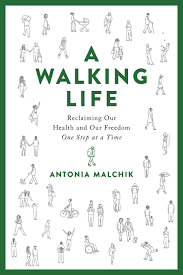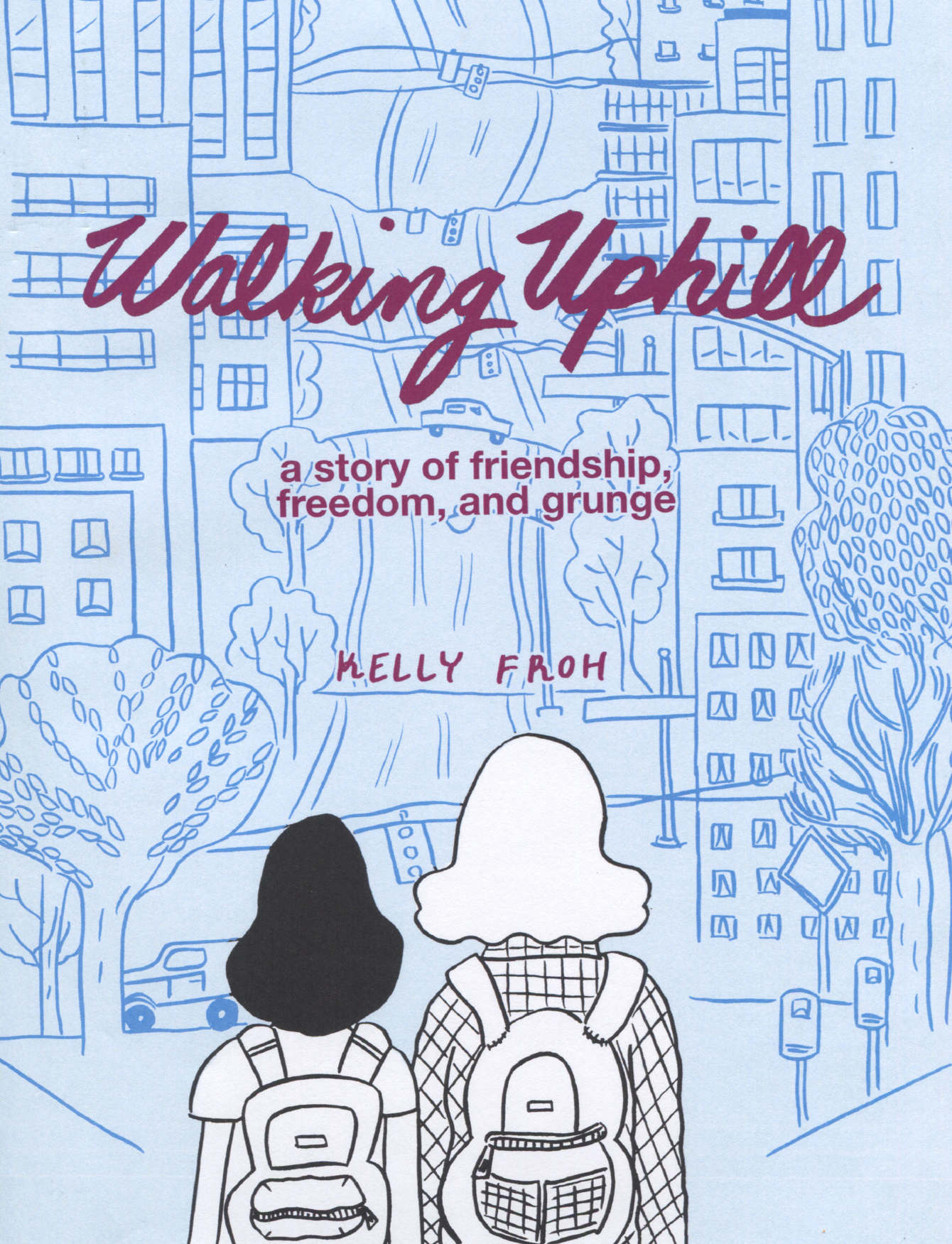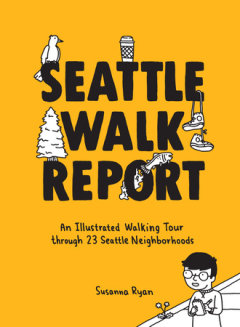One foot in front of the other
"There's a lot going on when we take a step," Antonia Malchik writes in her latest book, A Walking Life. She continues:
And most of us do it unwittingly, sometimes thousands of times per day if we're lucky. Each of those steps is a falling forward, taken witht he knowledge that the ground will catch us before we tumble. Walking is often described as an act of faith, but faith, I think, is the wrong word. It is closer an act of trust, the kind that comes from a decades-long relationship made strong through the fractures and strata of experience. Faith is given to that which we can never, in this life, know for certain. Trust is given to that which has proven itself. And this relationship, of our bodies and our motion with the planet that gives us life, has developed not over decades or even millennia, but over so many millions of years it's beyond the stretch of human imagination. We step forward in complete trust because we know exactly how our footfalls will be met.
Malchik is interested in A Walking Life in nothing less than a deep reconsideration of what walking means to us — as humans and spiritual beings and communal animals. Some of us think of walking as a necessary evil, a thing we do to bridge the necessary gap between the fridge and the sofa. Others think of walking as an adventure — a hike you take to a place you've never been, or a long walk while on vacation in a strange new place.
But Malchik frames walking as the way we communicate with the world. She sees it not as a monologue but as a conversation. When she lived in rural America, she hated that it was literally impossible to pass from one shopping center to the other shopping center across the street on foot — in order to cross four raging lanes of traffic, you had to get in your car. It's like the world is screaming at her, and there's no way for her to respond.
A Walking Life imagines how to begin the conversation again, to make cars rare and return walking to the norm that helped define us as a species. She travels the nation and the world, finding cultures that have rediscovered the pleasure of walking, and investigating cultures that have never forgotten that pleasure, all in pursuit of what she calls "the visceral reality of stories told through the million-plus-year conversation between our bodies and the earth we walk." It's an aspirational book, but it's also relatable to most of us as bipedal mammals.
As Malchik argues, we walk to see where we've been, and we walk to find out where we're going. Seattle cartoonist Kelly Froh uses walking as a potent symbol in her comics memoir Walking Uphill: A Story of Friendship, Freedom, and Grunge. The cover of the book features Kelly and her friend Missie, just arrived in Seattle in the early 1990s, considering the intimidating climb that is Denny Way. Just the thought of taking that first step is practically vertigo-inducing.
Anyone who's moved to Seattle understands what those hills mean: they're nearly as impassible as solid brick walls. Newbies walk a dozen blocks out of their way to avoid the near-vertical climbs. But once you've been here for a while, you understand that you can't spend your whole life as a Seattleite running away from the climb. You charge over. You do it again. After a while, almost imperceptibly, you stop losing your breath every time you do it. Finally, it's just part of your life.
Froh has lived in Seattle for over a quarter-century now, and Walking Uphill captures what that first uncertain stretch felt like — the predatory landlords, the sketchy neighbors, the unfamiliar customs of a new city. Being poor young adults, Froh and Missie travel by train and by foot, trying to find their place in the world. It's a journey that sends them, sadly, in different directions.
As a memoir, Walking Uphill hits all the right notes: it's neither too sentimental nor too hard on the two main characters. Froh seems genuinely happy to relive those early, impoverished days of figuring out who she was, and her deceptively simple art welcomes the reader in with the same eager spirit Froh embraced the world as a young woman. It's only when you spend a little time in the book and you see the masterful ways Froh is manipulating very complicated perspectives to lend the impression of simplicity that you realize the art hidden in plain sight on every page. It's a work where the author reveals the depths of her talent with every turn of the page — step by step through the journey.
Malchik argues that once you move to a place, your discovery hasn't ended. In fact, in Walking Life, she argues that's when the true discovery begins. There's perhaps no better example of the spirit of walking-as-discovery than Seattle cartoonist Susanna Ryan's new book Seattle Walk Report: An Illustrated Walking Tour Through 23 Seattle Neighborhoods.
If you've been paying attention for the last month, you know the sensational story of Seattle Walk Report: it began as an anonymous Instagram cartoon detailing short walks through Seattle neighborhoods, and it recently broke into the mainstream with a public unmasking by Ryan at a packed-to-the-rafters reading at the Seattle Public Library downtown. It's not every day you get to watch a cartooning superstar being born.
Ryan clearly understands the pleasures of her comic. Who hasn't been on a meandering walk around the neighborhood, only to notice, say, a series of ten abandoned Starbucks coffee cups? After a while, the patterns almost feel intentional, and everything seems to fall into place. A secret order is revealed, and everything feels a little more knowable than it did before.
While Froh uses walking as a symbol of discovery, Ryan uses it as a shorthand for intimacy. The Seattle in Walking Uphill is weird and exhilarating and a little foreign. In Seattle Walk Report it's familiar and friendly and more than a little bit beautiful. It's the same city, just seen from two very different vantage points. Froh's heat-of-grunge 90s Seattle might seem like it's from a completely different planet then Ryan's crane-festooned modern boomtown, but the streets and sidewalks are largely the same. They're not too far apart. We can connect them, if we just go one step at a time.
Paul is a co-founder of The Seattle Review of Books. He has written for The Progressive, Newsweek, Re/Code, the Utne Reader, the Los Angeles Times, the Seattle Times, the New York Observer, and many North American alternative weeklies. Paul has worked in the book business for two decades, starting as a bookseller (originally at Borders Books and Music, then at Boston’s grand old Brattle Bookshop and Seattle’s own Elliott Bay Book Company) and then becoming a literary critic. Formerly the books editor for the Stranger, Paul is now a fellow at Civic Ventures, a public policy incubator based out of Seattle.
Follow Paul Constant on Twitter: @paulconstant
Other recent reviews
Talk about the weather
-
Interpretative Guide to Western-Northwest Weather Forecasts
March 27, 2018
72 pages
Provided by publisherBuy on IndieBound
The man show
-
The Sexiest Man Alive
October 01, 2018
72 pages
Provided by publisherBuy online
Accidentally honest
-
The Shame of Losing
October 01, 2018
264 pages
Provided by authorBuy on IndieBound


